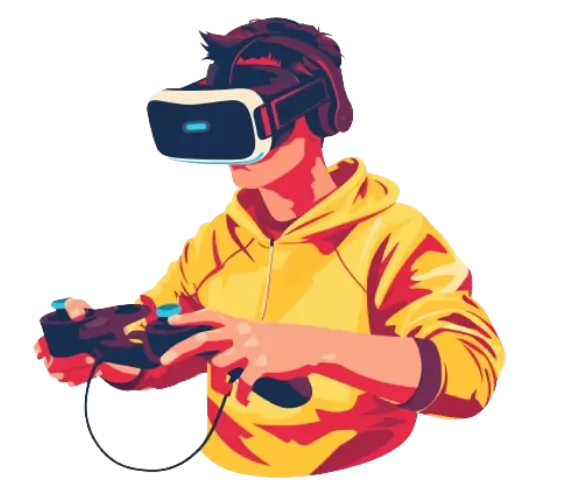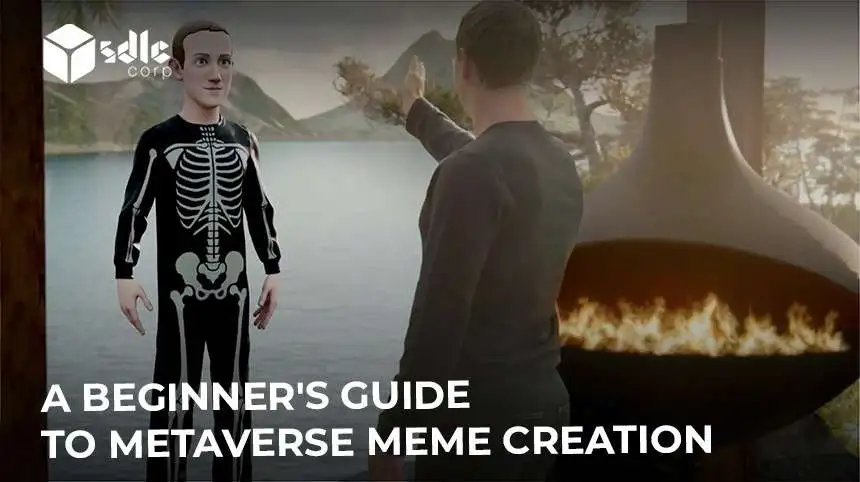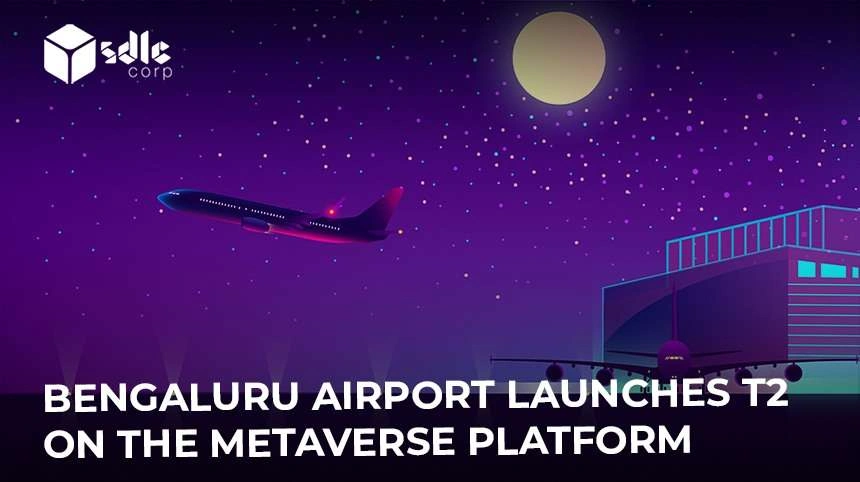Introduction
The concept of the Metaverse is rapidly evolving, with virtual worlds becoming an extension of our reality. Within these virtual realms, economies are taking shape, allowing users to engage in trade, own assets, and create value in ways that mimic real-world economic systems. Metaverse game development has played a key role in this transformation, creating environments where virtual economies can thrive. As more businesses invest in Metaverse Game Development Services, the line between virtual and real economies becomes increasingly blurred.
This blog explores how virtual economies in the Metaverse operate, how they mirror real-world financial systems, and how industries such as Blockchain Game Development are shaping the future of virtual commerce.
The Rise of Virtual Economies
Virtual economies are not a new phenomenon. Games like Second Life and World of Warcraft introduced the concept of trading virtual goods and services long before the Metaverse gained mainstream attention. However, today’s Metaverse offers a much more sophisticated and immersive environment where virtual economies can flourish.
These economies have become fully functioning systems with their own currencies, marketplaces, and trade networks, often mirroring the complexity of real-world financial systems. For instance, NFT Game Development has introduced ownership of digital assets through non-fungible tokens (NFTs), providing users with a way to buy, sell, and trade virtual items that hold tangible value in the real world.
Transform Your Gaming Experience Today!
A Metaverse Game Development Company specializes in creating immersive and engaging metaverse games for online and offline platforms.

Currency and Trade in the Metaverse
In the Metaverse, virtual currencies act as the foundation of trade. These currencies are often unique to specific platforms but can sometimes be converted into real-world money. Just as with traditional economies, the value of these virtual currencies can fluctuate based on supply and demand, and users can accumulate wealth through trade and entrepreneurship.
For instance, Metaverse Game Development Companies are enabling players to earn virtual currencies by completing in-game tasks, providing services, or selling digital assets like avatars, skins, or virtual real estate. These activities closely resemble real-world jobs and marketplaces, where individuals earn income and invest in assets.
Moreover, blockchain technology plays a crucial role in ensuring that these virtual currencies are secure and decentralized. By leveraging blockchain, platforms can guarantee the scarcity and ownership of digital assets, making virtual trade transparent and fair.
The Role of NFTs in Virtual Economies
Non-fungible tokens (NFTs) have become a cornerstone of virtual economies in the Metaverse. NFTs are unique digital assets that represent ownership of items such as art, virtual real estate, and in-game items. These tokens can be bought, sold, and traded, creating a thriving marketplace for digital goods.
Blockchain Game Development has made significant strides in incorporating NFTs into virtual economies. For instance, users can own unique assets within a game, such as rare weapons or custom avatars, and trade them with other players. This model is analogous to how people trade collectibles or luxury items in the real world. As a result, NFTs are helping bridge the gap between virtual and physical economies by providing a method for digital ownership that can have real-world value.
Furthermore, NFTs can generate passive income through mechanisms such as royalties, where creators earn a percentage of sales each time their NFT is traded. This concept mirrors the royalty systems used by musicians and artists in the real world, further reinforcing the similarities between Metaverse economies and traditional economies.
Virtual Real Estate and Property Ownership
One of the most striking similarities between virtual and real-world economies is the concept of property ownership. In the Metaverse, users can purchase virtual land, develop it, and even rent it out to others. These virtual properties can increase in value based on their location, popularity, and the features they offer, much like real-world real estate.
Companies specializing in Metaverse Game Development are increasingly focusing on creating virtual environments where users can interact with these digital properties. Virtual land is becoming a lucrative asset, with some plots being sold for millions of dollars. This mirrors the real-world real estate market, where location and demand significantly influence property prices.
Additionally, virtual real estate allows for the creation of new business models, such as virtual shopping malls, event spaces, and entertainment venues. Entrepreneurs can invest in these properties and generate revenue through advertising, ticket sales, or renting out spaces for events, similar to the real estate investment strategies seen in the physical world.
Level Up Your Metaverse Game! Get Expert Development Services Now!
At SDLC Corp, we create immersive metaverse games that engage players on any platform.

The Intersection of Gaming and Commerce
Gaming has long been a driving force behind the development of virtual economies. However, as the Metaverse continues to expand, the lines between gaming and commerce are becoming increasingly blurred. Players are no longer simply consumers of virtual goods; they are now active participants in the creation and exchange of value.
Many Metaverse Game Development Companies are focusing on creating games that allow players to monetize their time and skills. This is particularly evident in the rise of play-to-earn models, where players can earn real-world money by engaging with virtual environments. These systems are creating new income opportunities for gamers, mirroring the gig economy, where individuals can earn money on a freelance basis.
Moreover, brands and businesses are beginning to see the potential of virtual economies for marketing and sales. Virtual stores, branded in-game items, and sponsorship deals are becoming increasingly common in Metaverse environments, allowing companies to reach new audiences and create additional revenue streams.
Economic Governance in the Metaverse
Just as real-world economies require governance, virtual economies also need rules and regulations to function effectively. Game Development Services are helping to build the infrastructure needed to support fair and transparent virtual economies. In the Metaverse, governance can be decentralized through blockchain technology, allowing users to have a say in how these economies are managed.
For example, decentralized autonomous organizations (DAOs) are becoming popular in Metaverse platforms. DAOs are blockchain-based entities that allow users to vote on economic policies, asset management, and platform development. This mirrors real-world governance systems, where citizens vote on policies that affect the economy. By leveraging blockchain, these virtual economies can ensure that decision-making is transparent and democratic.
The Future of Metaverse Economies
As Metaverse Game Development Services continue to evolve, the potential for virtual economies will only grow. These economies are not just limited to gaming but are expanding into areas such as virtual work, education, and social interaction. The ability to create, trade, and own virtual assets is reshaping how we think about value and wealth in the digital age.
In the future, we may see virtual economies becoming fully integrated with real-world financial systems. For example, individuals could use virtual currencies to purchase physical goods or exchange virtual assets for real-world property. The possibilities are vast, and the lines between the virtual and physical worlds will continue to blur.
Explore our affordable Metaverse game development services
We design innovative metaverse games at SDLC Corp that redefine immersive experiences across platforms. Partner with us to craft something truly unforgettable.

Conclusion:
Virtual economies in the Metaverse are mimicking real-world financial systems in ways that were unimaginable just a few years ago. From virtual currencies and NFTs to virtual real estate and decentralized governance, these economies are becoming increasingly sophisticated and influential. Metaverse Game Development Companies are at the forefront of this transformation, creating the environments where these economies can thrive.
As we move further into the digital age, the Metaverse will continue to evolve, and its economies will play an increasingly important role in how we live, work, and play. The convergence of gaming, blockchain technology, and virtual commerce is opening up new opportunities for individuals and businesses alike, making the Metaverse an exciting frontier for economic innovation.
By embracing NFT Game Development and Blockchain Game Development, the future of the Metaverse promises to be as dynamic and complex as the real world, offering endless possibilities for those willing to engage with these new virtual economies.



